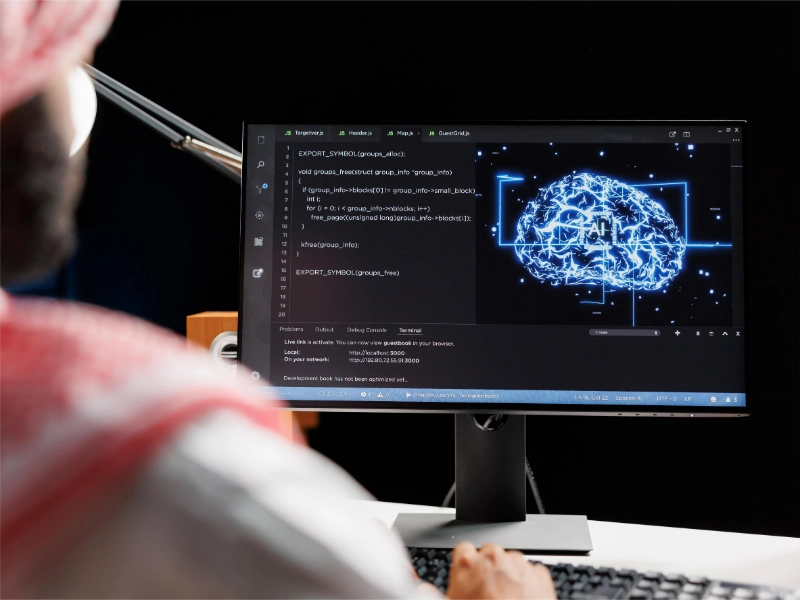- Artificial Intelligence encompasses Natural Language Processing, using algorithms and machine learning to enable computers to understand and generate human language. This synergy helps machines perform complex linguistic tasks, such as sentiment analysis and language translation, by analysing and interpreting human language.
- Artificial Intelligence significantly enhances the capabilities of Natural Language Processing by providing advanced tools for understanding context and nuances in human communication. This leads to more accurate and efficient language processing applications, such as chatbots and virtual assistants, improving user interactions.
- The combination of Artificial Intelligence and Natural Language Processing has wide-reaching applications in various industries, including healthcare, customer service, and education. It allows for automation of customer support, facilitates medical documentation, and provides educational aids, revolutionising traditional practices with efficient, AI-driven solutions.
Artificial Intelligence and Natural Language Processing are deeply intertwined, with AI enhancing the capabilities of NLP through advanced algorithms and machine learning techniques. This integration enables computers to understand, interpret, and generate human language effectively, tackling complex tasks such as sentiment analysis and real-time language translation.
These advancements significantly improve the functionality of AI-driven applications such as chatbots, virtual assistants, and language translation services, revolutionising how industries like healthcare, customer service, and education operate. By automating and refining communication processes, AI and NLP are crucial in driving efficiency and improving user experiences across various sectors.
AI and NLP integration
Artificial Intelligence (AI) significantly enhances Natural Language Processing (NLP) by applying its robust algorithms and machine learning capabilities. This integration allows computers to process and understand human language more effectively, enabling them to perform tasks such as translating languages and executing sentiment analysis with greater accuracy and context awareness.
Also read: Will AI automate coding?
Capabilities enhancement
AI technologies improve NLP by enabling more accurate interpretations of human language nuances and sentiments. This advancement allows for more sophisticated applications like chatbots and virtual assistants to interact in a way that feels more intuitive and human-like. Enhanced capabilities also include improved accuracy in voice recognition and more efficient text summarisation, making digital interactions more seamless and effective.
Also read: The future of AI and automation in the workforce
Broad industry applications
The fusion of AI with NLP transforms multiple industries by automating communication and analytical tasks. In healthcare, AI-driven NLP helps manage and interpret patient data, improving diagnostics and patient care. In customer service, it powers chatbots that handle inquiries with speed and precision, enhancing customer experience. Additionally, in education, NLP facilitates personalised learning experiences through adaptive learning systems and automated content generation.
Future implications
The ongoing development of AI and NLP promises further innovations that could redefine human-machine interactions. With continuous improvements in machine learning models and algorithms, future applications are expected to become even more intelligent and capable, potentially leading to more natural and efficient human-computer interaction across various platforms and devices. This evolution will likely lead to even more personalised and user-friendly technology applications, making AI and NLP integral to the advancement of digital communication and automation.

